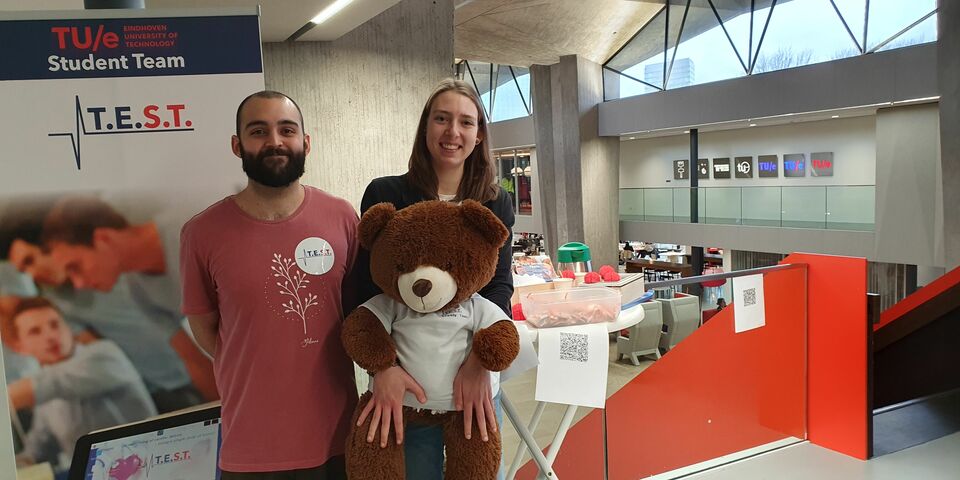Designing a biosensor to detect concussions
A great task lies ahead for T.E.S.T., the student team participating in the SensUs biosensor competition; over the next six months, they are going to design a biosensor that can detect traumatic brain injury when a person has suffered a hard blow to the head. The team currently consists of seven people, but is looking for more members. Particularly, students from degree programs other than Biomedical Engineering.
The theme SensUs chose for 2023 is traumatic brain injury. A home accident, a nasty blow on the sports field or a forceful hit to the head may result in a concussion, but there are often no external signs of trauma. Current diagnostic methods are not optimal; the CT and MRI scans that are used are unreliable and expensive. Sensus has challenged its candidates from universities all over the world to develop a reliable and affordable method to diagnose brain injuries.
Mirte Kleefsman is a second-year Biomedical Engineering student and secretary of the participating Eindhoven team T.E.S.T. I'm participating because here, I can thoroughly apply theory to practice. There is more time available than in an eight-week Design-Based Learning course and you get access to lab facilities. On top of that, you get to develop a product that has the potential to turn into a startup.”
A drop of blood
There are several ways to measure the concentration of the protein released into the bloodstream during a concussion. “That protein is called GFAP and can be detected in three ways. Using light reflection, by means of an electrochemical reaction and by looking at the molecules in a photo or video”, said Kleefman’s teammate Arthur Brim, master’s student in Computer Science. As to which option T.E.S.T. will pursue, the team hopes to decide this month.
On Monday afternoon, Kleefsman and Brim were in Atlas to recruit new members (see photo). They handed out cookies made by the team itself. “Making a biosensor requires not only great effort, but also input from different disciplines”, says the BME student. “The team also needs knowledge to build electrical circuits and analyze and interpret all the data. People from all fields are welcome, as every program has a different focus.”
She expects that they will have to work hard during the summer holidays. “Full-time commitment is required, with the exception of two weeks off. In August, we and all the other participants are going to show our results to each other and to relevant target groups.”
Tonight is the kick off of the SensUs Student Competition 2023, in the Blauwe Zaal. The teams and partners will introduce themselves (some of them online) and speakers will discuss and explain the theme. You can sign up via social media, for example on Insta @tuesensingteam. Last year’s after movie can be watched here.


Discussion